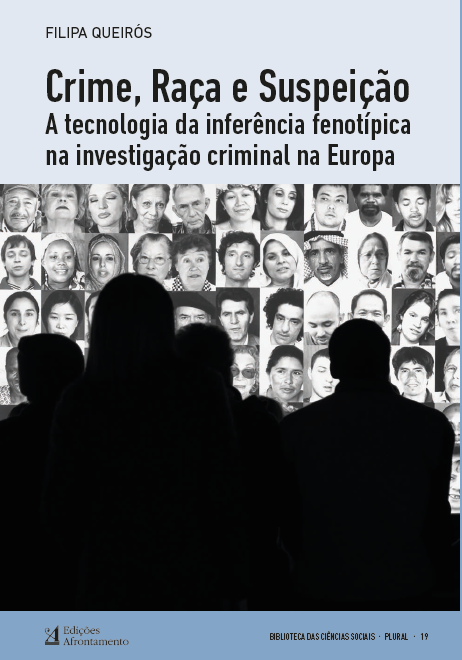Book
«Crime, Raça e Suspeição: A tecnologia de inferência fenotípica na investigação criminal na Europa» by Filipa Queirós
Afrontamento | 2021
Synopsis
Phenotypic inference, the technology under study in this sociological work, allows the physical appearance and biogeographical ancestry of potential suspects to be inferred from DNA. Exploring the perspectives and technological futures projected by professionals from diverse areas, based in five European countries, this work analyses the controversies, the expectations and the role they occupy in the development and application of this technology in Europe. Revealing the existence of collective expectations that point to the promising character of the future of phenotypic inference in criminal investigation, this book discusses the role of science in (re)constructing collective forms of criminal suspicion, increasing the exposure of certain population groups to control actions, state surveillance, discrimination and social stigmatization.
This book was carried out with the financial support of the European Research Council (ERC) under the European Union research and innovation programme Horizon 2020 (Contract No. 648608), within the project «EXCHANGE - Forensic Geneticists and the Transnational Exchange of DNA data in the EU: Engaging Science with Social Control, Citizenship and Democracy», led by Helena Machado and based at the Centre for Communication and Society Studies at the University of Minho. Between October 2015 and September 2017 the EXCHANGE project was based at the Centre for Social Studies at the University of Coimbra.
About the author
Filipa Queirós holds a PhD in Sociology from the Faculty of Economics at the University of Coimbra and is a researcher at the Centre for Social Studies at the University of Coimbra. Exploring the ethical, regulatory, political and social challenges associated with the use of emerging technologies in the context of criminal investigation, her research analyses the complex web of relationships between the development of genetic technologies and the institutional mechanisms of surveillance, control and categorization of suspect populations. Currently, she is a researcher in the project QUALIS where she develops research on working conditions in the judicial system.


